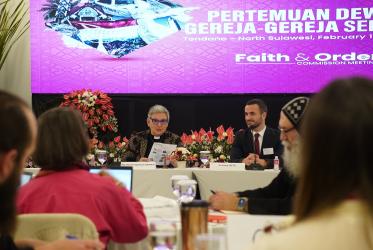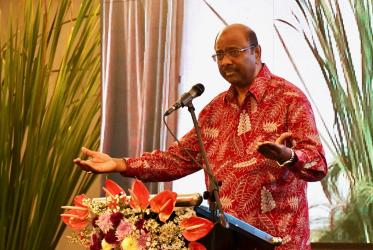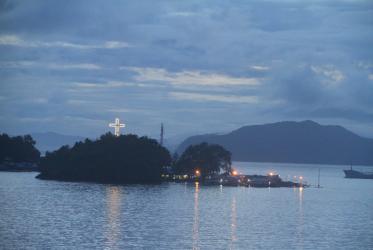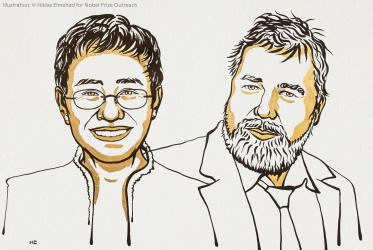Displaying 1 - 20 of 66
03 February 2024
WCC congratulates 2021 Nobel Peace Prize laureates
14 October 2021
In a COVID-stricken world, “everyone is important”
23 October 2020
WCC publishes two new Bible studies penned by authors from Colombia
24 February 2020
The cry of the Papuans in Indonesia
14 November 2019
WCC gravely concerned for West Papua
25 September 2019









